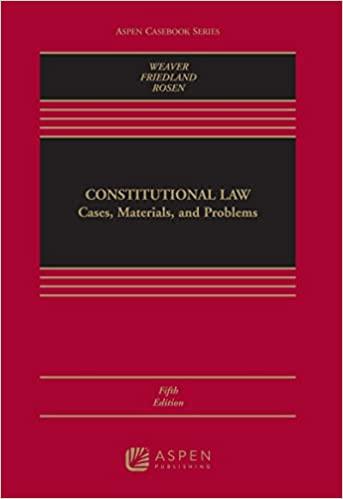Question
In the case of Standard Chartered Bank v. Pakistan National Shipping Corp., an issuing bank issued a letter of credit to a seller exporter of
In the case of Standard Chartered Bank v. Pakistan National Shipping Corp., an issuing bank issued a letter of credit to a seller exporter of goods. The letter of credit provided that shipping must occur not later than October 25, 1993. In fact, the goods were shipped on November 8, 1993. The bill of lading stated that goods were shipped October 25, 1993.
The Standard Chartered Bank, the seller exporter's bank which was the confirming bank, paid the draft to the seller exporter even though certain documents attached to the bill of lading had discrepancies from the letter of credit, and one of the documents referred to in the bill of lading was missing. The confirming bank asked the issuing bank for reimbursement of the draft. The issuing bank refused to reimburse the confirming bank. The confirming bank then sued the shipping corporation and the seller exporter for reimbursement of the draft on the basis that they issued a false bill of lading. The House of Lords decided that the issuing bank was liable to reimburse the confirming bank.
What do you think would be the argument upon which the ship owners relied to avoid having to pay all or any part of the original draft?
Step by Step Solution
There are 3 Steps involved in it
Step: 1

Get Instant Access to Expert-Tailored Solutions
See step-by-step solutions with expert insights and AI powered tools for academic success
Step: 2

Step: 3

Ace Your Homework with AI
Get the answers you need in no time with our AI-driven, step-by-step assistance
Get Started


